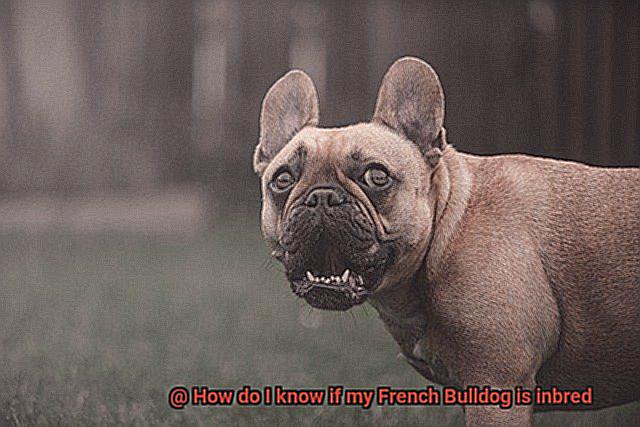How do I know if my French Bulldog is inbred?
The French Bulldog – the pint-sized charmer with a heart full of mischief and a face that could melt even the coldest of hearts. These little bundles of joy have become a favorite among dog enthusiasts worldwide, but did you know that inbreeding can be an issue for this beloved breed?
Inbreeding happens when closely related dogs, like siblings or parents and offspring, are bred together. While responsible breeders do their best to avoid it, sometimes certain bloodlines end up with limited genetic diversity, leading to potential health problems.
Now, don’t fret. In this blog post, we’ll explore the telltale signs that may indicate whether your French Bulldog is a result of inbreeding. We’ll also delve into the risks associated with it and offer some practical tips to ensure your furry friend stays healthy and happy.
So, let’s jump right in and uncover the clues you need to look out for when determining if your French Bulldog has been caught up in an inbred lineage.
The Pros and Cons of Inbreeding in French Bulldogs
Contents
- 1 The Pros and Cons of Inbreeding in French Bulldogs
- 2 Researching Your Frenchie’s Pedigree for Signs of Inbreeding
- 3 Common Health Issues as an Indication of Inbreeding
- 4 Consulting a Veterinarian or Breeder for Insight
- 5 Genetic Testing to Confirm Inbreeding Status
- 6 Challenges of Determining Inbred Status
- 7 Maintaining Good Health and Well-Being for French Bulldogs
- 8 Conclusion
French Bulldogs are undeniably adorable with their distinctive facial expressions and compact bodies. As a French Bulldog owner, you may have heard about inbreeding and its potential effects on the breed. In this article, we will explore the pros and cons of inbreeding in French Bulldogs, helping you make informed decisions about your furry friend’s health and well-being.
Pros of Inbreeding:
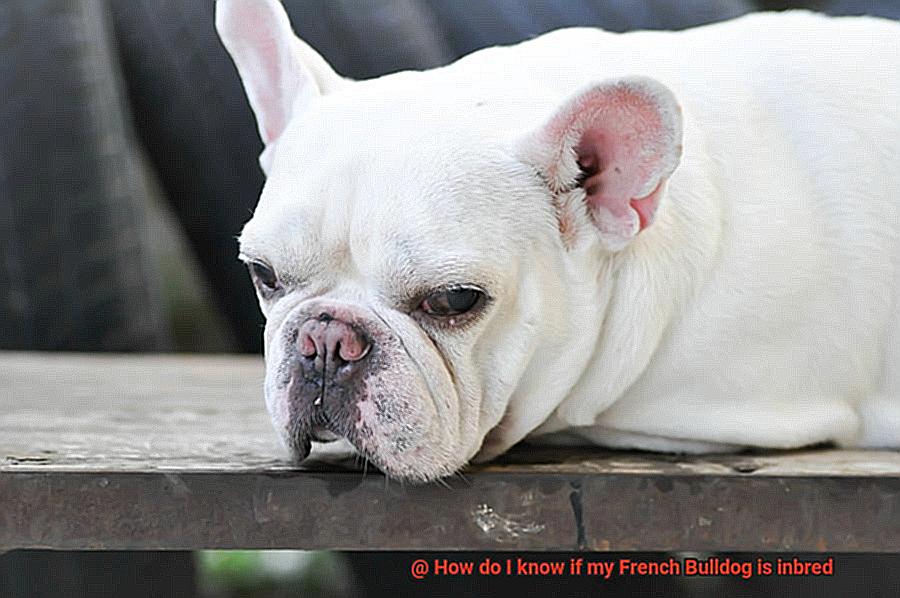
- Maintaining Desirable Traits: Inbreeding can help preserve certain desirable traits in French Bulldogs. When two dogs with similar characteristics are bred together, there is a higher chance of producing offspring that possess those same traits. This is particularly important for maintaining breed standards and ensuring that French Bulldogs retain their signature look.
- Eliminating Hereditary Diseases: In some cases, inbreeding can be used strategically to eliminate certain hereditary diseases from the breed. By mating dogs with known genetic conditions, breeders can identify and eliminate these problems from future generations. This can result in healthier French Bulldogs overall.
Cons of Inbreeding:
- Increased Risk of Genetic Disorders: One major concern with inbreeding is the increased likelihood of genetic disorders and inherited diseases. When closely related dogs are bred together, there is a higher chance of inheriting harmful recessive genes from both sides of the family tree. This can lead to a range of health issues, including respiratory problems, eye abnormalities, skin disorders, and musculoskeletal conditions.
- Reduced Genetic Diversity: Another drawback of inbreeding is the loss of genetic diversity within the breed. As each generation becomes more closely related, the gene pool becomes more limited. This can result in reduced vigor and overall health in French Bulldogs. Restricted genetic diversity makes them more susceptible to various illnesses and less adaptable to changing environmental conditions.
- Increased Risk of Behavioral Problems: Studies have shown that dogs produced through close genetic relationships are more likely to exhibit aggressive or anxious behavior. This can pose challenges for owners and may require additional training and socialization efforts to address these issues.
Researching Your Frenchie’s Pedigree for Signs of Inbreeding
You’ve fallen in love with a French Bulldog and can’t wait to bring one home. But before you start dreaming about all the adorable moments you’ll share, it’s crucial to research your Frenchie’s pedigree for signs of inbreeding. Inbreeding can lead to serious health issues and genetic disorders in these lovable pups. Let’s dive into why it’s so important to investigate their family tree and how you can do it.

What is a Pedigree?
A pedigree is like a family tree for dogs. It provides valuable information about your Frenchie’s ancestors, including their lineage, health history, and any titles or awards they may have earned. Think of it as a roadmap that can help you understand your dog’s genetic makeup.
How to Obtain Your Frenchie’s Pedigree:
If you’re purchasing a French Bulldog puppy from a reputable breeder, they should provide you with a pedigree certificate. This document will give you insights into your pup’s lineage. However, if you already own a Frenchie and don’t have their pedigree, don’t worry. You can reach out to the breeder or contact the kennel club where they were registered to request a copy.
Signs of Inbreeding in the Pedigree:
When examining your Frenchie’s pedigree, keep an eye out for these red flags that may indicate inbreeding:
- Repeated Names: If you notice certain ancestor names appearing multiple times within a few generations, it could be a sign of inbreeding.
- Close Relationships: Look for parent-offspring or sibling-sibling matings in the pedigree. Such close relationships increase the likelihood of inbreeding.
- Lack of Diversity: A limited variety of ancestors in the lineage may suggest that inbreeding has been practiced.
Health Conditions Associated with Inbreeding:
French Bulldogs are prone to certain health conditions, and inbreeding can exacerbate these problems. Some common issues include brachycephalic syndrome, respiratory difficulties, allergies, skin problems, and joint disorders like hip dysplasia. If these conditions frequently appear in your Frenchie’s pedigree, it’s a cause for concern.
Consulting Experts:
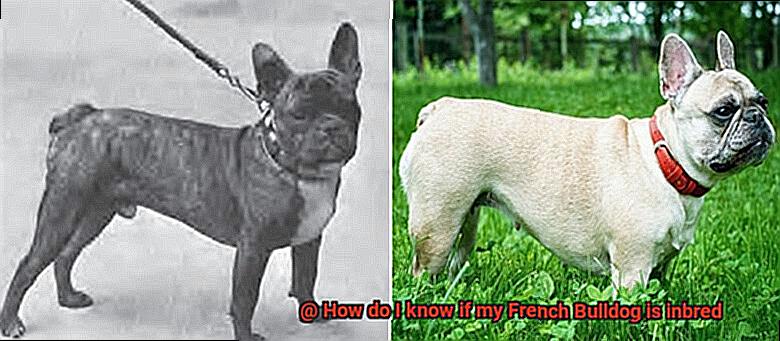
If you suspect your French Bulldog may be inbred, it’s essential to consult with a veterinarian or a geneticist who specializes in dog breeding. They can provide expert guidance on assessing the risks associated with inbreeding and recommend appropriate health screenings or genetic tests to ensure your dog’s well-being.
Choose Responsible Breeders:
To prevent inbreeding and promote healthier French Bulldogs, it’s crucial to choose responsible breeders who prioritize genetic diversity and follow ethical breeding practices. Thoroughly research breeders and their breeding programs before making a decision.
Common Health Issues as an Indication of Inbreeding
French Bulldogs are beloved for their adorable appearance and affectionate nature. However, it’s important to be aware that inbreeding can lead to a higher prevalence of certain health issues in these lovable pups. By understanding the common health problems associated with inbreeding, you can be better equipped to recognize potential indicators and take proactive measures to ensure the well-being of your furry friend.
Brachycephalic Airway Syndrome:
French Bulldogs are already prone to this condition due to their short snouts. Inbreeding can exacerbate the problem, leading to more severe symptoms such as difficulty breathing, snoring, and decreased exercise tolerance. If your Frenchie exhibits these signs consistently, it may be indicative of inbreeding.
Intervertebral Disc Disease:
Inbreeding increases the risk of developing intervertebral disc disease in French Bulldogs. This condition affects the spinal discs and can result in pain, weakness, and even paralysis. Regular monitoring of your Frenchie’s mobility and seeking veterinary attention if any unusual symptoms arise is crucial.
Skin Problems:
Genetic weaknesses caused by inbreeding can make French Bulldogs more prone to allergies and skin infections. Look out for symptoms such as itching, redness, hair loss, and recurrent ear infections. Early intervention through proper grooming, a balanced diet, and regular check-ups with a veterinarian can help manage these issues effectively.
Eye Problems:
Inbred French Bulldogs may have a higher risk of developing eye problems such as cherry eye (prolapse of the gland of the third eyelid), cataracts, or progressive retinal atrophy (gradual loss of vision). Regular eye examinations by a veterinary ophthalmologist are essential to detect potential issues early on.
Weakened Immune System:
Inbreeding can contribute to a weakened immune system in French Bulldogs, making them more susceptible to infections, diseases, and other health issues. Ensuring your Frenchie receives proper vaccinations, a nutritious diet, and regular exercise can help support their immune system.
Consulting a Veterinarian or Breeder for Insight
French Bulldogs are known for their adorable appearance and affectionate nature. However, due to their popularity and limited genetic pool, they may be prone to certain health issues caused by inbreeding. Consulting a veterinarian or breeder is crucial in gaining insight into whether your French Bulldog is inbred and understanding the potential health risks associated with it. In this article, we will explore the importance of seeking professional advice and guidance from these experts to ensure the well-being of your furry friend.
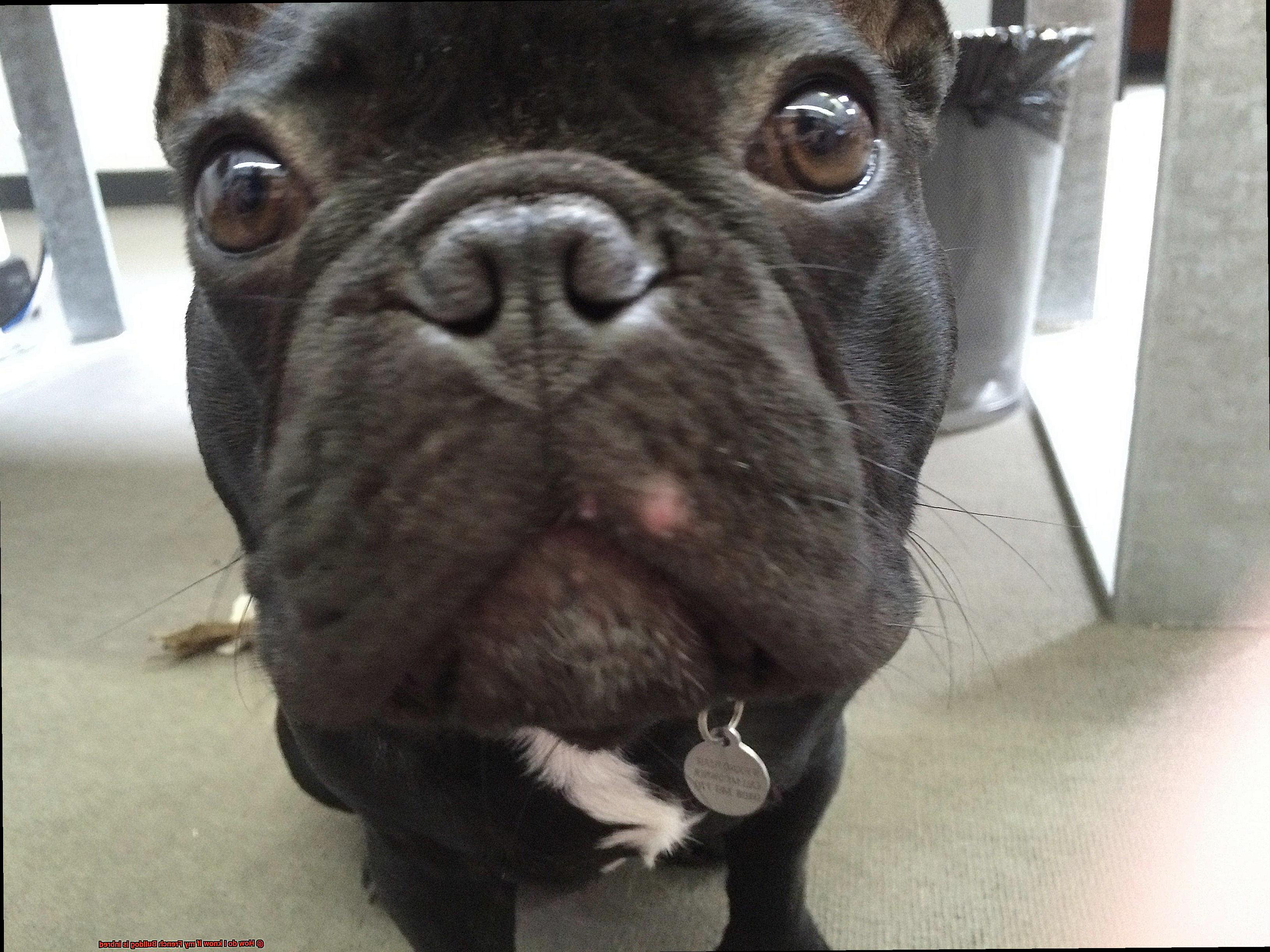
The role of veterinarians:
Veterinarians are trained professionals with extensive knowledge about animal health and genetics. They can provide valuable insights regarding inbreeding in French Bulldogs. Consider the following points:
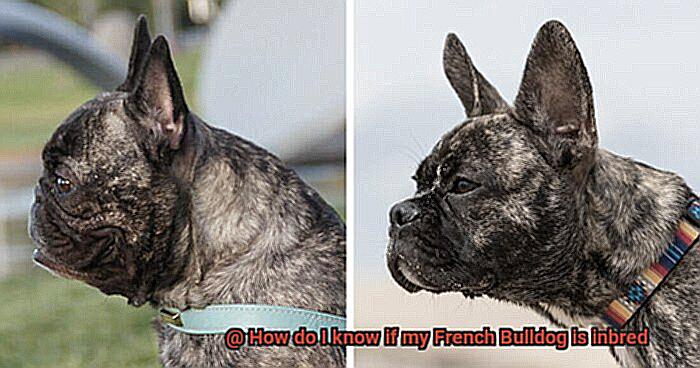
- Seek guidance on assessing if your French Bulldog is inbred.
- Provide information about your dog’s pedigree or lineage to trace back any instances of inbreeding.
- Discuss the option of genetic tests to confirm if your dog is inbred.
- Utilize their expertise to understand potential health risks associated with inbreeding.
The significance of responsible breeders:
Reputable breeders who prioritize the health and well-being of their dogs can offer valuable insights into inbreeding. Here’s what you should know:
- Inquire about their breeding program and measures taken to avoid inbreeding.
- Responsible breeders understand the importance of genetic diversity and actively work towards maintaining healthy bloodlines.
- Discuss any known health issues within the bloodline that could be attributed to inbreeding.
- Trustworthy breeders can provide information on the overall health of their dogs and their lineage.
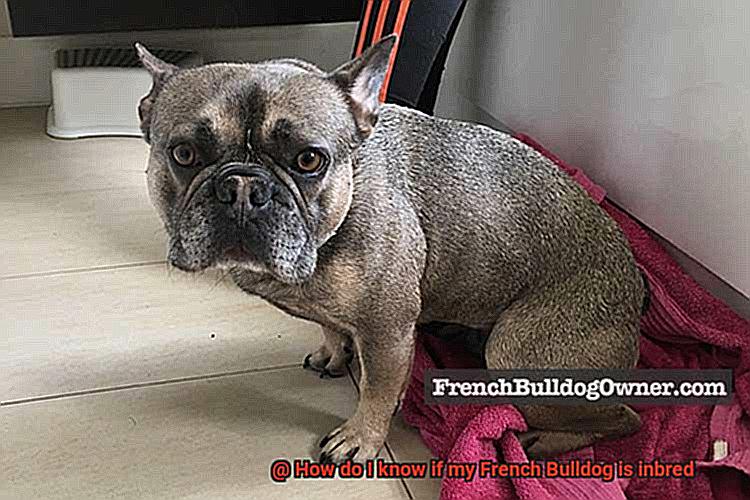
Genetic Testing to Confirm Inbreeding Status
As a responsible owner, it’s crucial to understand your furry companion’s genetic background. Fear not. With the advent of genetic testing, we now have a reliable tool to confirm your French Bulldog’s inbreeding status and make informed decisions about their well-being.
The Canine Genetic Diversity Test:
One popular method of genetic testing is the Canine Genetic Diversity Test. This test evaluates your French Bulldog’s DNA against a diverse reference panel of dog breeds. By comparing specific genetic markers, it provides a coefficient of inbreeding (COI) score – a numerical representation of their inbreeding level.
Interpreting the COI Score:
A higher COI score suggests a higher degree of inbreeding, signaling potential health risks associated with reduced genetic diversity. On the other paw, a lower COI score indicates greater genetic diversity and potentially fewer health concerns. It’s important to remember that COI scores should be considered alongside other health evaluations to gain a comprehensive understanding of your Frenchie’s well-being.
Other Genetic Tests:
Beyond the Canine Genetic Diversity Test, additional genetic tests are available to assess specific health conditions prevalent in inbred French Bulldogs. These tests can screen for issues like hip dysplasia or brachycephalic airway syndrome, providing owners with valuable information to take proactive measures and safeguard their pet’s health.
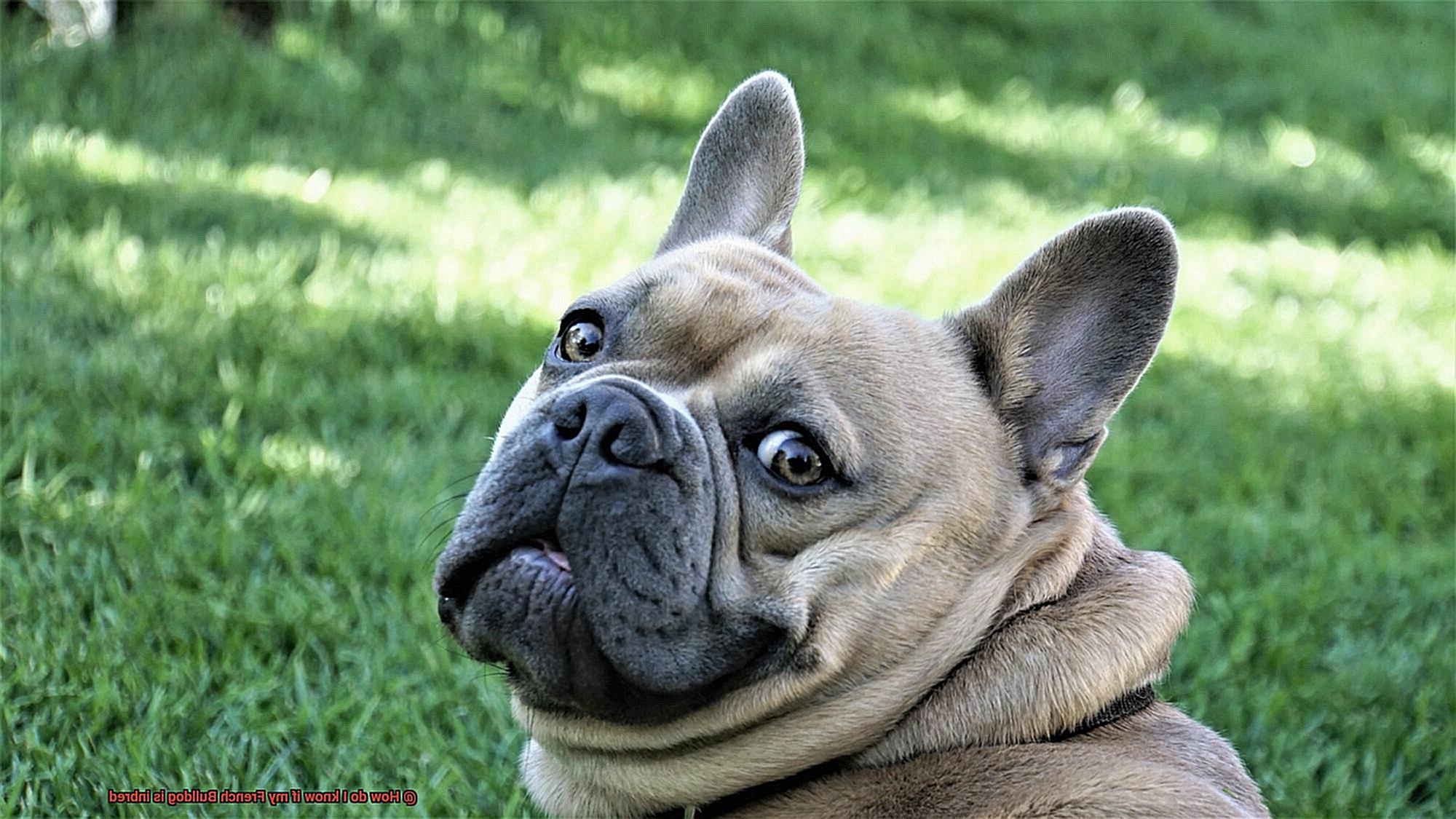
The Breeder’s Perspective:

Genetic testing not only benefits owners but also allows breeders to make informed decisions about breeding pairs. By understanding their French Bulldogs’ genetic makeup, breeders can work towards reducing the prevalence of inherited diseases and promote healthier future generations.
Consult with the Experts:
Genetic testing can be complex, and it’s essential to seek guidance from veterinary geneticists or reputable breeders experienced in this field. They can help interpret the test results accurately and guide you in taking appropriate actions based on them.
Challenges of Determining Inbred Status
French Bulldogs are beloved pets known for their adorable appearance and affectionate nature. However, like any breed, they can be susceptible to certain health issues, some of which can be associated with inbreeding.
Determining whether a French Bulldog is inbred can be challenging due to several factors. In this article, we will explore the challenges of determining inbred status in French Bulldogs, providing valuable insights for owners and breeders.
Lack of Visual Indicators:
Unlike some breeds where physical traits can indicate inbreeding, there is no simple visual indicator for determining if a French Bulldog is inbred. Inbreeding can lead to the expression of recessive genetic disorders, but these disorders can also occur in non-inbred dogs. Therefore, relying solely on physical appearance is insufficient.
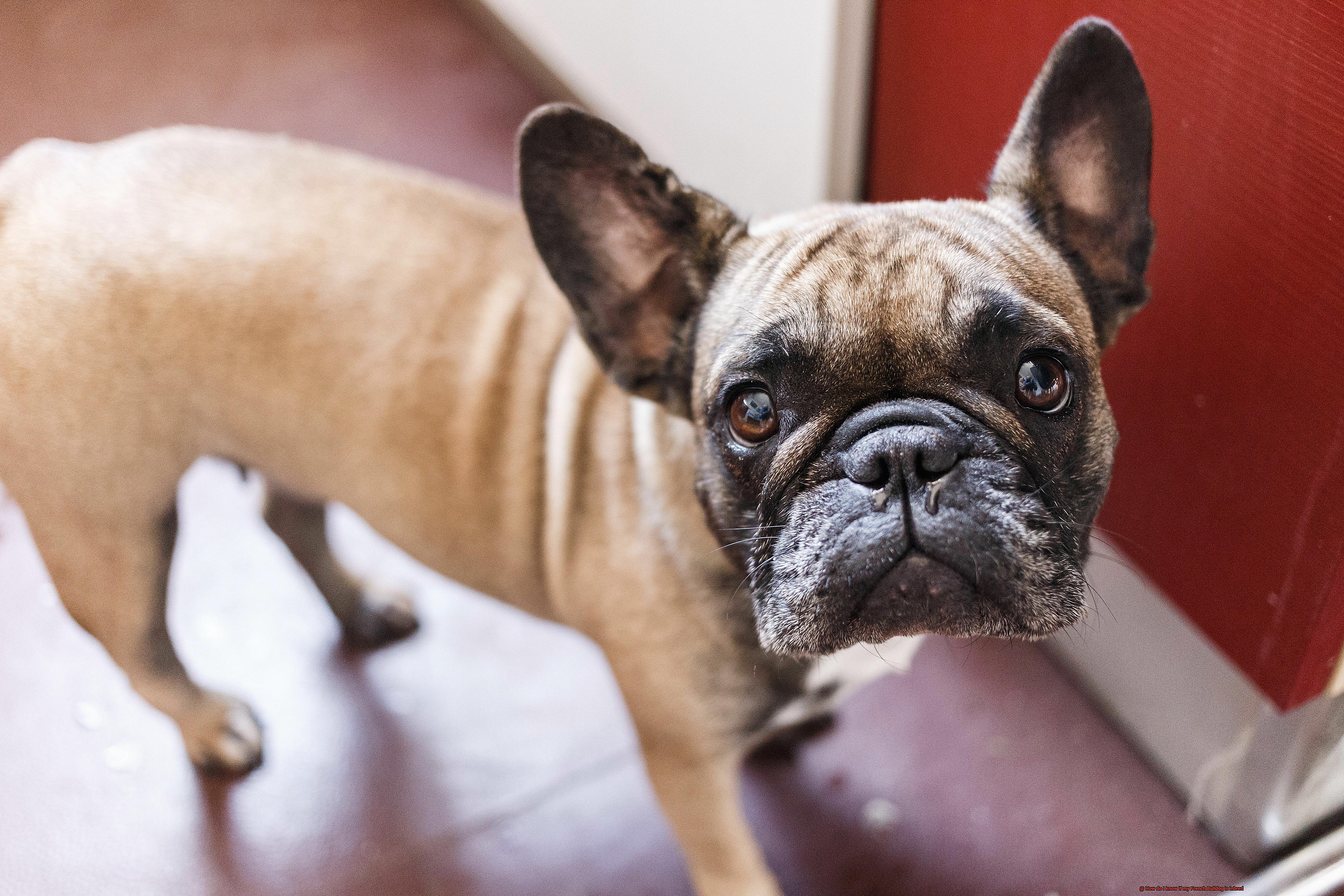
Genetic Testing Availability and Affordability:
Accurate determination of inbred status requires genetic testing. However, genetic testing may not always be readily available or affordable for every dog owner. It is essential to consult with a veterinarian or a reputable breeder who can guide you on the availability and reliability of genetic testing options.
Mixed Ancestry:
Another challenge in determining inbred status is that a French Bulldog may have mixed ancestry. This can complicate the assessment as it becomes harder to identify potential inbreeding within the dog’s lineage. Understanding the dog’s pedigree and conducting thorough research into its ancestry can help shed light on the possibility of inbreeding.
Line Breeding:
Breeders who purposefully breed dogs for specific traits may engage in line breeding, which involves breeding individuals with a common ancestor. Line breeding increases the likelihood of inbreeding within a breed but does not necessarily mean that a dog is inbred. The degree of relatedness and the presence of specific genetic markers play a crucial role in determining if a dog is inbred.
Misrepresentation:
Unfortunately, some breeders may intentionally hide or misrepresent the inbred status of their dogs to maintain their reputation or sell puppies at higher prices. This makes it even more challenging for owners to accurately determine the inbred status of their French Bulldogs.
By prioritizing responsible breeding practices, breeders play a crucial role in ensuring the overall health and longevity of French Bulldogs. These practices help prevent hereditary health issues, maintain the breed’s unique characteristics, and promote the well-being of our beloved pets.
As a French Bulldog owner, it’s essential to support and encourage responsible breeding practices to provide the best possible life for your furry companion.
Maintaining Good Health and Well-Being for French Bulldogs

French Bulldogs are adorable and lovable companions with unique physical features, but they require special care to maintain their good health and well-being. In this guide, we will explore the essential aspects of caring for your French Bulldog, including regular veterinary check-ups, a balanced diet, exercise, grooming, and creating a safe living environment. By following these tips, you can ensure that your furry friend leads a happy and healthy life.
Regular Veterinary Care:
Regular visits to the veterinarian are crucial for maintaining your French Bulldog’s health. Besides providing necessary vaccinations, these check-ups allow the vet to assess your dog’s overall condition and address any health concerns. Aim for at least one annual visit, but consult your vet for more frequent trips if required.
Balanced Diet:
Feeding your French Bulldog a balanced diet is essential for their well-being. Consult with your veterinarian to determine the appropriate type and amount of food for your dog based on factors such as age, weight, and activity level. Avoid overfeeding or feeding them table scraps to prevent obesity and digestive issues.
Regular Exercise:
Though French Bulldogs don’t require intense exercise like some other breeds, regular physical activity is still important. Daily walks or play sessions help keep them fit and mentally stimulated. However, be cautious of excessive exercise or extreme temperatures due to their short-nosed nature.
Proper Grooming:
Regular grooming is necessary to keep your French Bulldog’s coat clean and healthy. Brush their fur regularly to remove loose hair and prevent matting. Clean their ears regularly to prevent infections, trim their nails when needed, and pay attention to dental hygiene by brushing their teeth or providing approved dental chews.
Safe Living Environment:
Create a safe and comfortable living environment for your French Bulldog. Keep them in a well-ventilated area, provide appropriate shelter during extreme weather conditions, and ensure they have access to fresh water at all times. Additionally, provide a comfortable bed or resting area for their overall comfort.
lyiY8Comz8s” >
Conclusion
Determining if your French Bulldog is inbred is crucial for their overall health and well-being. By understanding the signs and indicators, you can make informed decisions about their care. Inbreeding occurs when closely related dogs mate, leading to a higher risk of genetic disorders and health issues. So, how can you tell if your furry friend is a product of inbreeding?
One way to assess this is by examining their pedigree. A well-documented lineage with diverse ancestors suggests a lower likelihood of inbreeding. On the other hand, if there are repeated names or close relatives appearing multiple times in the pedigree, it could be an indication of potential inbreeding.
Physical characteristics can also offer clues. Inbred French Bulldogs may exhibit exaggerated features like excessively short muzzles, bulging eyes, or abnormal body proportions. These traits are often associated with breed standards but can be more pronounced in dogs that have been bred too closely.
Health problems are another red flag. Inbred French Bulldogs are prone to various genetic disorders such as respiratory issues, skin conditions, allergies, and joint problems. If your dog frequently experiences these ailments or requires constant medical attention, it’s essential to consider the possibility of inbreeding.
Behavioral abnormalities might also suggest a history of inbreeding. Dogs bred from close relatives may display heightened anxiety, aggression, or fearfulness due to compromised genetic diversity.
Consulting with a veterinarian who specializes in genetics can provide further insight into your French Bulldog’s background. They can perform tests and evaluations to determine if there are any underlying genetic concerns linked to inbreeding.
Remember that identifying whether your French Bulldog is inbred requires careful observation and professional guidance.
